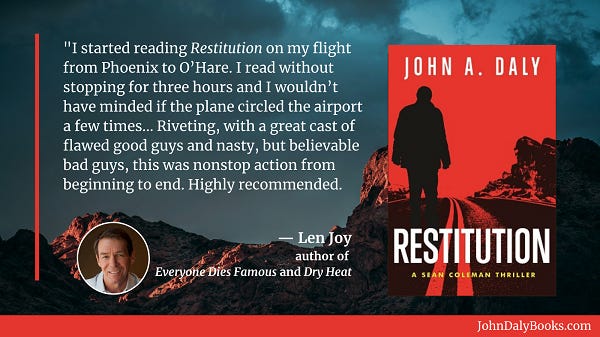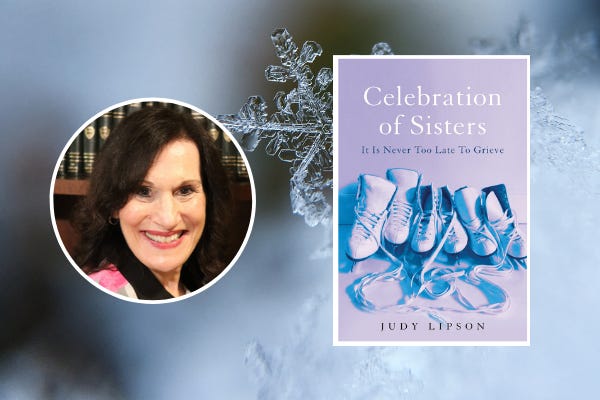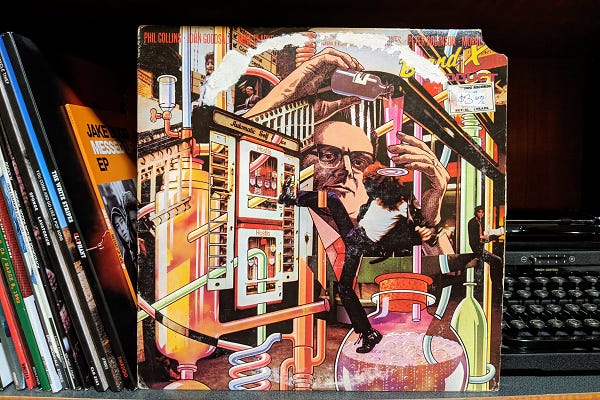Note: This post was automatically generated from John’s weekly newsletter, The Daly Grind. If you encounter broken links or images, you can go here to read from the original newsletter: Read More
As an author, one of the things I’m most often asked about, in regard to my books, is how much research I put into my writing. In fact, I was asked that very question by someone at a book club meeting just a few weeks ago, so I figured it might make a good topic for today’s newsletter.
The answer is that I research pretty much any subject I’m not reasonably familiar with. Guesswork doesn’t cut it.
For example: firearms. I admittedly don’t know a ton about guns, which presents a unique challenge for a thriller-genre novelist whose books are full of them. So, I’ve done a good amount of Internet research over the years on various pistols, rifles, capacities, and ammunition. I’ve also tapped into the expertise of people I would consider gun experts, of which I know a couple.
The same is true of the medical field. When I was working on my second book, Blood Trade, I already knew a fair amount about the key topic of blood plasma, being that I used to donate my own on a pretty regular basis. Those who’ve read that book, however, know there’s much more medical science in it than just on plasma. Beyond the research I did on those topics, I also spoke with a cardiologist friend of mine who helped fill in some blanks.
And just between us, I may have gone a little overboard with the research in some other medical-related areas.

I think I might have to spend a little time browsing through a dumpster behind a medical facility tomorrow. #BookResearch
Safeguard was probably the book I did the most research for, being that its primary setting was an underground nuclear missile silo, a type of facility I knew next to nothing about (beyond information I’d remembered from tours of a retired one not far from home); the book was actually based on that particular site.
Conversely, one area I’ve needed very little help with has been computer and Internet technology. After all, they were at the heart of my career for many years as a programmer and systems analyst, including during the time-span when the Sean Coleman thrillers take place (the early 2000s).
I also haven’t had to do a whole lot of Googling on American cities. That’s because I’ve only written about places where I’ve actually been, and have absorbed the geography, culture, and architecture firsthand. Traverse City, Michigan from From a Dead Sleep was a vacation destination years ago, as was Pawleys Island, South Carolina from Broken Slate. Las Vegas, where Restitution takes place, is a city I’ve been to many times. The fictitious mountain town of Winston, Colorado, where Sean Coleman lives, is a composite of places I grew up going to in my home state.
And of course, detailed knowledge of 80s and 90s detective shows, whose quirky references are a hallmark of the Sean Coleman Thrillers, come straight from my upbringing as a couch potato.
It’s important to me to get things right in my books — as far as particular skills, trades, and regions go — because I don’t want to insult readers who know more about these things than I do. The reason is that it drives me kind of nuts whenever I watch a television show or movie, or read a book, that totally misrepresents (or completely screws up) a topic that I’m at least somewhat familiar with.
Do I always succeed when it comes to accuracy? Probably not, but I do put forth a serious effort to get things right. Not all writers do.
In fact, even some of the most respected and successful fiction authors out there have been known to drop the ball in this arena. For example, as magnificent of a storyteller as Stephen King is, he’s also kind of infamous for mis-describing various firearms in his books. People like me would never pick up on such flaws, but others certainly have.
Along the same lines, a pet-peeve of one of my old coworkers (which I kind of shared at the time) were late-90’s action movies that depicted computer technology in a way that made absolutely no sense. One example is the film, The Net (with Sandra Bullock) that included various scenes with bad guys physically shooting computers (with guns) to supposedly wipe all incriminating information from them.
That’s not how it works, folks. The data would still be there in most cases, even years before “The cloud.”
And if you ever want to see a Colorado-based film that astonishingly manages to get nearly everything wrong about Colorado, check out 2019’s Cold Pursuit starring Liam Neeson. It’s an absolute comedy of errors (not to mention horrific storytelling).

As a Coloradan, I was particularly amused by the depiction of modern-day Denver as a dozen or so high-rises surrounded by desolate prairie, with a single (rarely traveled) road leading in and out. Reminded me of post-apocalypse Atlanta from the Walking Dead.

Not every story has to be plausible, of course, but serious storytellers should at least respect their audience enough to get basic aspects right. All it takes, in many cases, is a little research.
I certainly believe my readers are worth it, and I hope that comes across in my writing.
Do you have a pet-peeve when it comes to how writers get details wrong? Tell me about it in an email or in the comment section below.
The Gift of Honest News and Commentary
Earlier this year, I wrote a piece on which national news sources I trust and find very insightful. It ended up being one of my most popular newsletters. At the top of that list was The Dispatch, an online news organization run by Stephen Hayes and Jonah Goldberg (who I incidentally wrote a separate piece about just a couple weeks ago).
Though The Dispatch offers a good amount of free stuff, their premium offering (which I pay for) delivers some particularly strong content, including a morning newsletter that does a great job of breaking down the big, important news stories of the day. Frankly, it’s excellent.
Anyway, as a paying member, I’ve been given FIVE free month-long premium memberships to The Dispatch, that I can give away as a gift to anyone. So, if any of you would like one of those memberships, just let me know (in the comment section or in an email) and it’s yours (while supplies last)!
New Blurb for “Restitution”
My upcoming book “Restitution” recently received a nice blurb from award-winning author, Len Joy. Len’s written five books including the great novels, Everyone Dies Famous and Dry Heat. He’s also a nationally ranked triathlete who competes internationally, representing out country as part of TEAM USA.
Thanks Len!
New Release
Judy Lipson, who I’ve worked with through my publisher in recent months, is enjoying the release of her new memoir, “Celebration of Sisters.” The book details the loss of her two sisters, and how it affected her life in and out of figure-skating for 30 years. It’s a compelling story.
You can learn more about it here.
Correction Alert!
In last week’s newsletter about seeing South Korean boy band, BTS, I mistakenly wrote that the band’s name stood for “Behind the Scenes.”
I’m going to totally throw my son under the bus here, since he’s the one who told me that (rather matter-of-factly, with almost enough stank to suggest I was an idiot for not already knowing it).
Well, as the mother of a 16-year-old BTS super-fan pointed out to me, that’s not at all what it stands for:
“BTS does not stand for Behind the Scenes- it’s Bangtan Sonyeondan which translates to bulletproof boy scouts.”
Since accuracy is job one here at the ‘Daly Grind’ (or at least somewhere in the top 100), I wanted to get that mistake cleared up, and offer my sincerest apologies to the bulletproof boy scouts, the BTS Army, and those of you who’ve worked behind the scenes somewhere.
Random Thought

It’s time we ask why 1994’s “No Escape” with Ray Liotta still isn’t available on streaming services.
Obligatory Dog Shot
Needy.
Featured Vinyl
This week’s album was a pretty obscure purchase. I came across it in a record-bin somewhere, and while the band’s name — “Brand X” — didn’t ring a bell, the individual’s name in the top-left corner of the cover most certainly did: Phil Collins. So, I figured a measly $4 was worth satisfying my curiosity.
With the help of Wikipedia, I later discovered that Brand X was a UK jazz fusion band formed in the mid 1970s. Collins joined it while he was in Genesis, but before he replaced Peter Gabriel as the band’s lead singer. Collins continued to pull double-duty for a few years before coming into his own as a solo act in the early 80s. He started out as Brand-X’s drummer, but later took over some of the vocals.
1979’s “Product” is an interesting listen, with a funky, jammin’ sound that Collins’ voice compliments well. I can’t say it’s a record I’ve listened to often, but it’s kind of cool and was definitely worth the $4.
That’s all for now. Thanks for reading today’s Daly Grind.
Want to drop me a line? You can email me at johndalybooks@hotmail.com, and also follow me on Facebook, Twitter, and Instagram. If you haven’t subscribed to this newsletter yet, please click on the “Subscribe now” button below. Doing so will get these posts emailed directly to you.
Also, if you’re not caught up on my Sean Coleman Thrillers, you can pick the entire series up at a great price on Amazon. And if you’re interested in signed, personalized copies of my books, you can order them directly from my website.
Take care. And I’ll talk to you soon!






